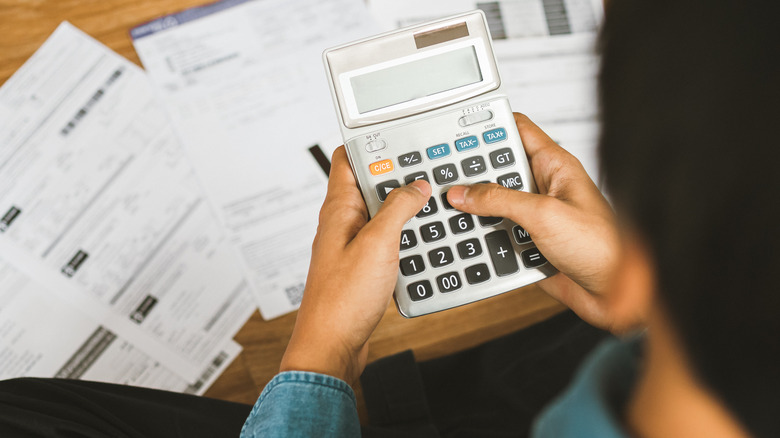3 Questions To Ask Before Refinancing Your Mortgage
The housing market has been crazy in the last few years, and many people have benefitted from this. While buying a home might not be what you're interested in, refinancing is also trending within the homeowner and lender community. Refinancing your home is when you take your old loan and trade it for a newer and better one. And according to Rocket Mortgage, although you're not buying a new home, the processes are similar, and the info you need to buy a home is almost the same as refinancing.
So, although refinancing a home might not seem like it's as big of a deal as buying a new one, it is a significant change in your financial situation. The low rates and quickly changing market might make you feel like you have to make this decision urgently, but you should take your time, consider the options, and be sure refinancing your mortgage is going to benefit you and your specific situation.
1. Is refinancing in line with your goals?
Before you take any steps toward refinancing your mortgage, take a minute to consider whether it aligns with your future goals. Refinancing is a big deal and should be taken seriously. While there are a lot of benefits, not all these benefits apply to everyone. Be sure you understand just how long you'll be living in your home and the current value of your home. Knowing this will help you understand whether or not refinancing is a good idea.
You'll also want to consider why you want to refinance your current mortgage. Of course, if rates are lower than your current rate and there are rumors that they'll be going up sometime soon, this might make you think about the long-term benefits of refinancing. This said, while it may seem like a great time to do a refinance, that shouldn't be the only reason you consider this major change (via CNBC).
Refinancing at low rates provides an opportunity to take advantage and possibly lower your monthly mortgage rate or shorten the length of your mortgage loan. In the long run, this could save you thousands of dollars in interest rates and is a fantastic idea. However, if you don't plan to stay in your home for an extended time, you probably wouldn't reap the benefits.
2. Do the savings outweigh the costs?
The benefits of refinancing your mortgage are enticing, and even if you weren't considering it before, you might be now, given the hype that's been circling the internet. However, that doesn't mean that refinancing is for everyone. While you might save money refinancing, there are still closing costs involved that many homeowners aren't aware of or aren't anticipating.
"No-cost" or "low-cost" refinancing programs don't mean there are no closing costs involved. It simply means that the lenders have found other ways of having you pay those costs. According to Better.com, some lenders will include the closing costs within your new loan, which raises the loan price. Others will increase the loan's interest rate to pay those loans off. Again, this might be labeled as "no cost," but in the end, you'll likely pay more for the closing costs with this method, so be sure to ask a lot of questions when the terms "no cost" and "low cost" are thrown around.
3. What is cash-out refinancing?
Lowering your bill and shortening your mortgage loan are great reasons to consider refinancing, but they're not the only reasons. You might want to consider cash-out refinancing, which, depending on your situation, could prove prudent (via USA Today). Cash-out refinancing is a type of refinancing where you increase the amount of your loan and take the difference — based on your home's equity — as a cash-out payment for use right now.
For example, if you have a mortgage balance of $200,000 from an original $225,000 loan, and your home's value today is appraised at $300,000, this means you have $100,000 in equity. As Bankrate notes, while you won't be able to cash out your entire equity, lenders can help you cash out the maximum if you so choose. This maximum is your home equity minus 20% (similar to a down payment on a new home loan).
Whether or not a cash-out refinance is a good idea depends on how you intend to use the funds. For example, taking the money and using it for home improvements will add value to your home and quickly begin to raise your equity. You could also use your funds to consolidate high-interest debt, which could help you get your debt under control and lower your monthly bills overall. Further, you could use a cash-out refinance to pay for college.
Alternatively, using the money from a refinanced mortgage to go on a vacation is universally thought of as ill-advised. This is because you'll be increasing the loan on your home without increasing its value or financially benefiting from the new loan terms.



